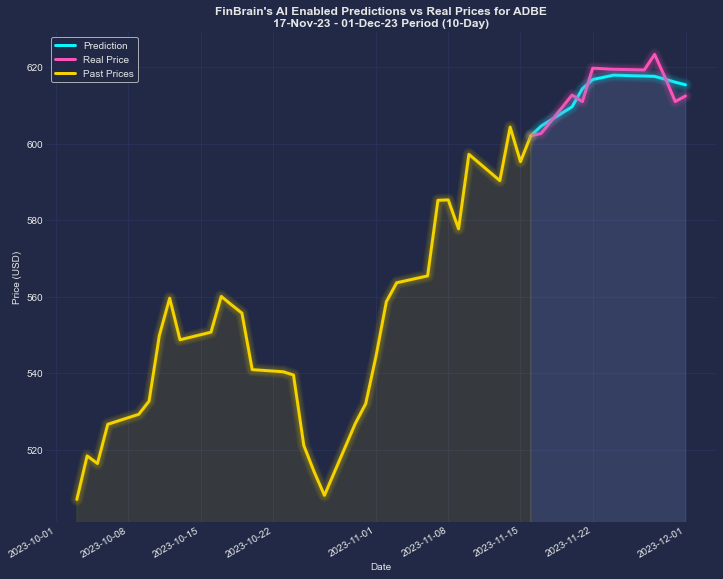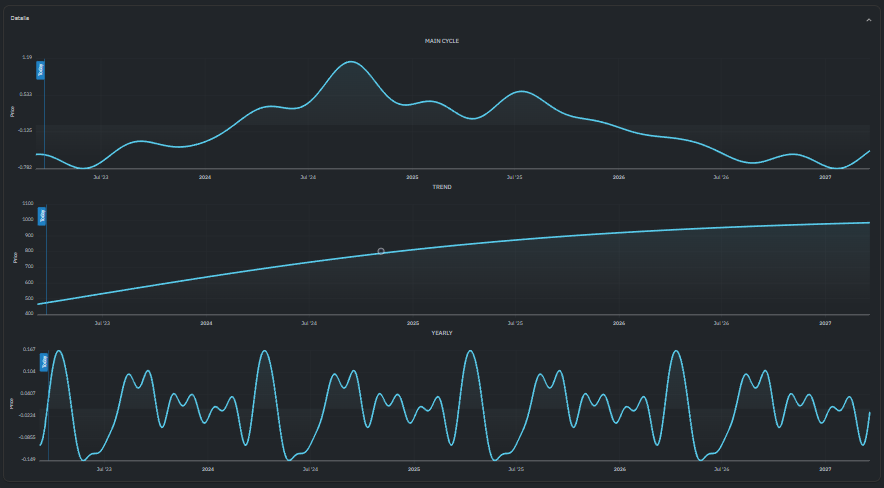1. Start with a Clear Plan and Strategy
Tip: Define your goals for trading along with your risk tolerance and your target markets (e.g., copyright, penny stocks) before diving in. Begin with a small, manageable portion of your portfolio.
What’s the point? A clearly-defined plan can help you remain focused, avoid emotional decisions, and ensure your long-term success.
2. Test using paper Trading
Start by simulating trading with real-time data.
Why: You will be able to test your AI and trading strategies under live market conditions before scaling.
3. Select a low-cost broker or Exchange
Make use of a trading platform or broker that has low commissions that allow you to make small investments. This is particularly beneficial for those just starting out with small-scale stocks or copyright assets.
Examples of penny stocks: TD Ameritrade Webull E*TRADE
Examples of copyright: copyright copyright copyright
Why: When trading smaller amounts, cutting down on charges for transactions can guarantee that your profits are not reduced by commissions.
4. Choose a Specific Asset Category at first
Start by focusing on a one type of asset, such as penny stocks or copyright, to make the model simpler and reduce the complexity.
Why: By focusing on one type of asset or market, you can build expertise faster and learn more quickly.
5. Utilize small size positions
Tip: Minimize the risk you take by limiting your positions to a minimal proportion of the value of your portfolio.
The reason: It reduces the risk of losses as you refine your AI models and understand the market’s dynamics.
6. Gradually increase the capital as you gain more confidence
Tips: Once you’ve noticed consistent positive results for the course of a few months or quarters and months, gradually increase your capital but do not increase it until your system has demonstrated reliability.
Why? Scaling allows you to gain confidence in the strategies you employ for trading and the management of risk prior to taking bigger bets.
7. Priority should be given to an easy AI-model.
Tip: To predict the price of stocks or copyright begin with basic machine learning models (e.g. decision trees, linear regression) before moving on to deeper learning or neural networks.
The reason is that simpler models are easier to understand and maintain them, as well as optimize them, particularly when you’re just beginning to learn about AI trading.
8. Use Conservative Risk Management
TIP: Follow strict risk control guidelines. This includes strict limit on stop-loss, size limitations, and moderate leverage use.
Why: The use of risk management that is conservative prevents you from suffering large losses in the beginning of your trading career, and also allows your strategy to scale as you grow.
9. Reinvesting Profits back into the System
Tip: Reinvest early profits back into the system, to improve it or expand operations (e.g. upgrading hardware or raising capital).
Reason: By investing profits, you can compound returns and improve infrastructure to allow for larger operations.
10. Regularly Review and Optimize Your AI Models regularly and review them for improvement.
Tip: Monitor the performance of AI models continuously and improve them using more data, more advanced algorithms or better feature engineering.
Why: Regular optimization allows your models to evolve in line with market conditions and improve their predictive abilities as your capital increases.
Bonus: After a solid foundation, consider diversifying.
Tip : After building a solid base and proving that your system is profitable consistently, you can look at expanding it to other asset categories (e.g. moving from penny stocks to larger stocks, or adding more copyright).
The reason: Diversification can help reduce risk and improves returns by allowing your system to capitalize on different market conditions.
Start small and scale gradually, you can learn and adapt, create a trading foundation and achieve long-term success. Check out the top ai for stock market hints for site info including ai trade, smart stocks ai, ai stock prediction, copyright ai, smart stocks ai, penny ai stocks, artificial intelligence stocks, investment ai, ai day trading, copyright predictions and more.

Top 10 Tips To Starting Small And Scaling Ai Stock Pickers To Stock Pickers, Predictions And Investments
A prudent approach is to start small, then gradually expand AI stockpickers to predict stock prices or investment. This will allow you to lower risk and gain an understanding of how AI-driven stock investing works. This method will allow you to develop your trading strategies for stocks while building a sustainable approach. Here are 10 suggestions to help you start small and scale up by using AI stock-picking:
1. Begin by focusing on a Small Portfolio
Tip 1: Make a small, focused portfolio of bonds and stocks that you understand well or have studied thoroughly.
Why: A focused portfolio allows you to get comfortable working with AI models and stock selection while minimizing the possibility of big losses. As you get more familiar, you can gradually increase the number of stocks you own or diversify across sectors.
2. AI is a great method to test a method at a time.
Tips: Begin with one AI-driven strategy like momentum or value investing prior to proceeding to other strategies.
Why: This approach will help you understand how your AI model operates and refine it for one specific type of stock picking. When the model is successful, you will be able to develop new strategies.
3. To reduce risk, begin with a modest amount of capital.
TIP: Start by investing a small amount to lower your risk. This will also allow you to make mistakes and trial and trial and.
What’s the reason? By starting small you minimize the risk of loss while you work to improve the AI models. This is a great opportunity to get hands-on with AI without putting up the money.
4. Try out Paper Trading or Simulated Environments
Tip: Before committing real money, you should use the paper option or a virtual trading environment to test your AI stock picker and its strategies.
The reason is that paper trading allows you to simulate real market conditions, without the financial risk. This allows you to refine your strategy and models based on data in real time and market volatility, while avoiding financial risk.
5. As you increase your investment you will gradually increase the amount of capital.
Once you have steady and positive results Gradually increase the amount of capital that you invest.
The reason is that gradually increasing capital allows for risk control while scaling your AI strategy. Rapidly scaling up before you have proven results can expose you to risky situations.
6. AI models are continuously monitored and optimised
Tips. Monitor your AI stock-picker frequently. Adjust it based the current market conditions, indicators of performance, as well as any new data.
The reason is that market conditions continuously shift. AI models have to be updated and optimised for accuracy. Regular monitoring will allow you to identify any inefficiencies and underperformances to ensure that your model is able to scale efficiently.
7. Building a Diversified Portfolio of Stocks Gradually
TIP: To begin by starting with a smaller set of stocks.
The reason: A smaller inventory will allow for easier management and better control. Once you’ve got a reliable AI model, you can include more stocks in order to broaden your portfolio and decrease risks.
8. Prioritize low-cost, low-frequency Trading initially
TIP: Invest in low-cost, low-frequency trades as you start scaling. Invest in shares that have less transaction costs and less transactions.
Why: Low-frequency, low-cost strategies enable you to focus on long-term growth while avoiding the complexities of high-frequency trading. This will also keep the cost of trading at a minimum while you improve your AI strategies.
9. Implement Risk Management Strategies Early On
Tips: Implement effective risk management strategies right from the start, including the stop-loss order, position size and diversification.
The reason: Risk management is essential to safeguard investments as you scale up. With clear guidelines, your model doesn’t take on more risk than what you’re confident with, regardless of how it scales.
10. Perform the test and learn from it
Tip – Use the feedback from your AI stock selector to refine and tweak models. Make sure to learn and adjust in time to what works.
Why? AI models get better over time as they get more experience. Analyzing performance allows you to constantly improve your models. This decreases the chance of mistakes, increases predictions, and scales your strategy on the basis of information-driven insights.
Bonus Tip: Make use of AI to Automate Data Collection and Analysis
Tip: Automate the gathering, analysis, and reporting process as you scale, allowing you to manage larger data sets efficiently without becoming overwhelmed.
The reason: As stock-pickers scale, managing large data sets manually becomes impractical. AI can help automate processes so that you can have more time to make strategy and higher-level decision-making.
The final sentence of the article is:
Start small, but scale up your AI stocks-pickers, forecasts and investments to effectively manage risk while improving your strategies. It is possible to increase your exposure to the market and increase your odds of succeeding by focusing in the direction of controlled growth. The most important factor to growing AI investment is a systematic approach that is based on data and evolves over time. Read the recommended over at this website on ai investment platform for blog info including trading chart ai, ai predictor, best ai trading bot, best stock analysis website, ai investing app, penny ai stocks, ai financial advisor, stock trading ai, best ai penny stocks, stock analysis app and more.


Leave a Reply